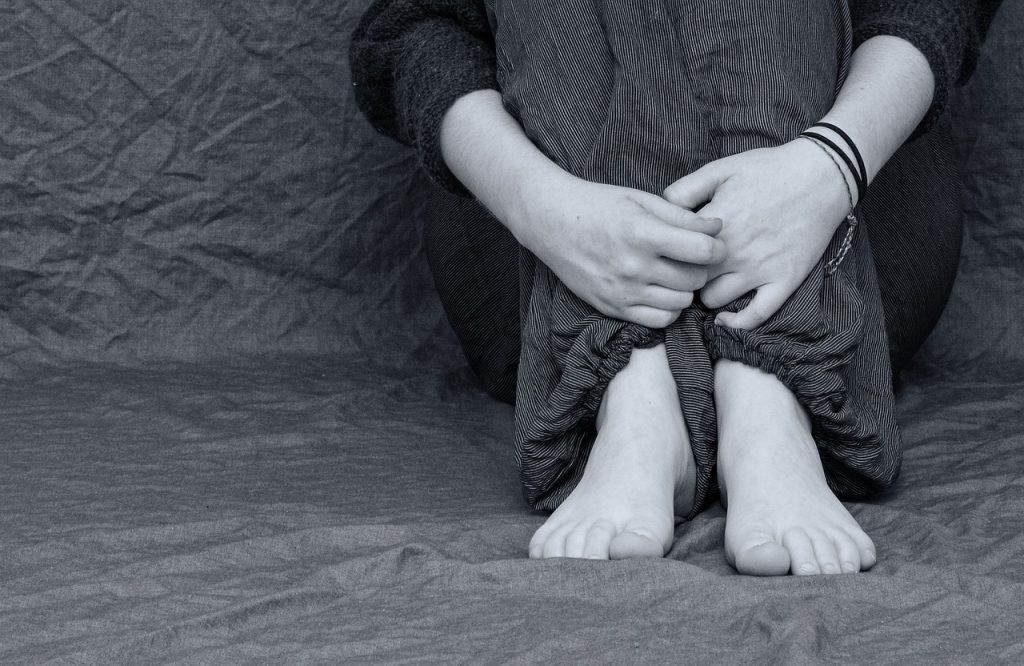
Introduction to the Seven Stages of Grief
We may associate grief with the passing of a loved one, but grief can come from many different situations and losses. We can grieve the end of a friendship or relationship, the end of a job, moving away or a past version of ourselves. Anything that has ended or “died” can be grieved.
With grief comes its seven stages, which we may not be aware of. Grief can look different to everyone, but overall, these stages almost always follow us in our grieving process. One thing to note is that grief may cause us to revisit past stages, as healing is never a linear process.1 If you believe you may be stuck in one grief stage, it may be time to seek professional help.1
1. Shock and Denial
When we first experience loss, our brain often initiates a state of shock as a form of self-defense to protect itself.2 Shock occurs when our feelings about the loss are overwhelming.2 Shock means we act normally, as our brains have not yet begun to process the emotions or situation.2 Shock is also a form of detachment from the situation or a loss, as part of our brain protects itself from overwhelming emotions.2
Denial gives our brains time to absorb the loss.2 Denial allows the brain to acknowledge and process only what it can handle in the initial realization of loss.2 During this phase, it is normal to want to avoid others to avoid discussing or acknowledging the loss.2 People in denial may be forgetful, distracted, or want to fill their time with busy activities to avoid acknowledging the loss.2
When we move out of the denial phase, emotions start to surface and the pain that we have denied starts to emerge.3 This is the start of the pain and guilt phase.
2. Pain and Guilt
Realizing the loss can cause emptiness, pain and yearning.1 We may feel guilty for not doing more to change the outcome or situation. Blaming and regret about the events surrounding the loss or the loss itself can often be seen in this stage.1 Feelings of guilt and pain can increase when we ruminate about perceived mistakes which extends this phase.1
3. Anger and Bargaining
Anger is a normal part of the grief process when we lose something we love.2 It can be tempting to ignore our feelings of anger, but it will surface in some way.2 Anger can involve being angry at the person or thing that was lost.2 Anger can also be directed at the people around us, even if they were not directly involved in the loss.2 However, under anger is pain, which may be uncomfortable to deal with.2 Experts suggest that the anger stage starts between one and five months post-loss and decreases thereafter.1
Bargaining involves us trying to regain control over our feelings of helplessness and anger that we feel in response to the loss.1 Often, we engage in scenarios or “what ifs” in our heads, trying to undo something that cannot be undone.1 3 During bargaining, we may feel vulnerable and helpless, which can exacerbate the bargaining stage.3 This stage enables us to come to terms with the loss and the profound impact of its absence in our lives.1
4. Depression
Depression occurs when time has passed and the ramifications of the loss become clear in our lives.1 This stage is often the longest, especially for people who are prone to depression, who do not have social support or isolate during sadness.
The depression stage may come with physical symptoms like reduced concentration, inability to sleep, sleeping too much, headaches, body aches or digestive issues.1 This depression stage is not clinical depression, though they may seem similar.2 If this stage lingers, it may be time to seek professional help.1
5. Upward Turn
After the depression stage, we adjust to life with the loss and see that we have a future to live.1 Pain and anger reduce, and the mind and body become more relaxed and hopeful.3
6. Reconstruction and Working-Through
During the reconstruction and working-through phase, we begin to put our lives back together and start the process of moving forward.3 We often regain more energy and become less overwhelmed by the emotions associated with the loss in this stage.1 We may reconnect with others and become more optimistic about the future.1 We may also resume self-care activities that bring more energy into their lives again.1
7. Acceptance and Hope
Acceptance of a new life without this loss is often a gradual process.3 Acceptance and hope are the final stages of grief, as they bring optimism and an understanding of the loss’s impact on our lives.1 As acceptance sets in, we begin to plan for the future again, even if sadness and pain are still attached to the loss.1 Acceptance does not mean that you are okay or agree with what happened and the loss that incurred.2 Acceptance means accepting what a new life looks like without that loss and adjusting accordingly. Grief can often be a lifelong process, with both good and bad days, but it can be more comfortable by accepting the reality of the loss.2
Conclusion of the Seven Stages of Grief
In conclusion, grief is a process that lasts through seven stages. Grief is different in every stage and affects everyone differently.1 Healing is not a linear process, and we can regress in stages before moving forward.1 If you are stuck in one of these stages, it may be advantageous to seek professional help.1
About the Author Madison Mussio
Feel Free to Connect with Madison on / Instagram / TikTok / LinkedIn / Facebook
References
[1] Holland, K. (2024, September 30). The stages of grief and what to expect. Healthline. https://www.healthline.com/health/stages-of-grief
[2] Waichler, I. (2023, January 27). 7 Stages of Grief: Examples & What To Expect. Choosing Therapy. https://www.choosingtherapy.com/7-stages-of-grief/
[3] Gordon, S. (2024, July 28). The 7 Stages of Grief. Health. https://www.health.com/stages-of-grief-7482658




